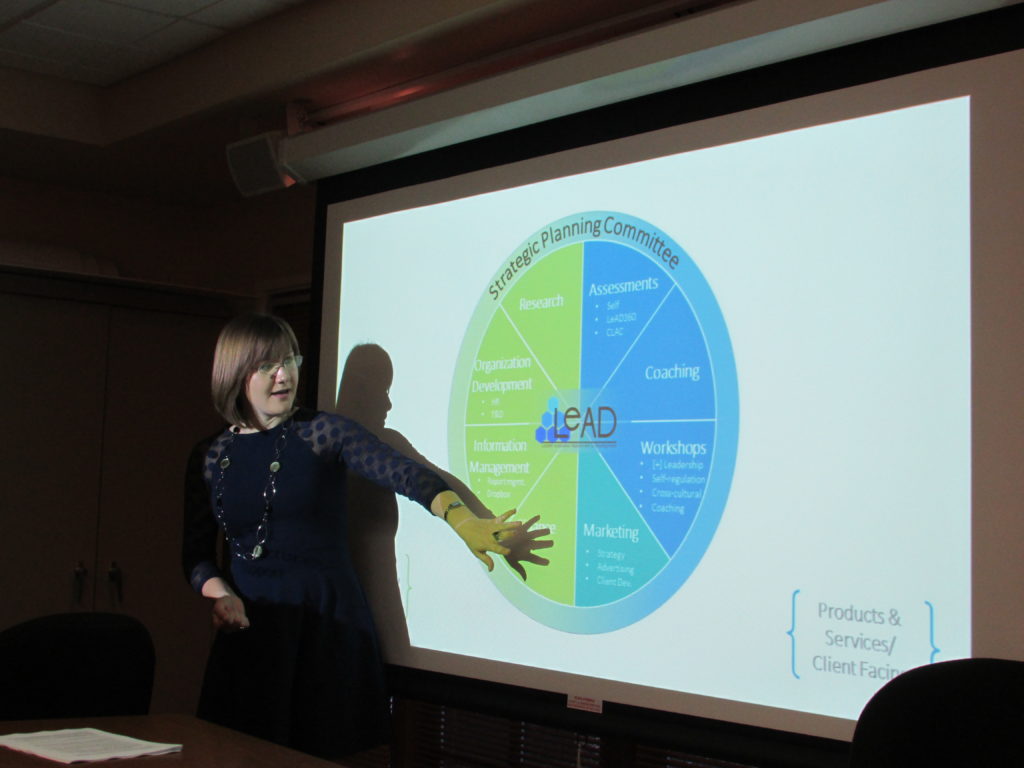A Narrative Approach to Coaching Leaders

Effective leaders are usually defined as those who know themselves, who identify wholeheartedly with their role as leaders, and who are aware of their values, cognitions, feelings, strengths, and weaknesses. Moreover, they develop as leaders to the extent that they purposefully and effectively use this knowledge to learn and grow. The life-story or narrative approach has been an avenue to understand how leaders’ interpretations of their life experiences support them in developing self-awareness and a sense of identity as a leader.
It is relatively common to think about leaders – public figures or people in our everyday life – in terms of the experiences that have shaped their lives and their leadership path. Ordinary and extraordinary experiences – practicing a sport, losing someone close to crime or illness, overcoming financial hardship, or developing a business idea – are impactful because they help the leader explain how and why he or she became a leader. As such, practicing a sport is seen as a development ground for discipline, hard work, and teamwork which are crucial leadership qualities; and losing an important person becomes a catalyst for a life dedicated to fighting crime or searching for medical breakthroughs. Thus, leaders can draw meaning from these experiences, which help shape their “story” as leaders. Furthermore, if a leader’s “story” reflects back an image of capabilities, strengths, and resources, it can support leaders’ development.
One strategy (or intervention) widely used in organizational contexts to support leaders’ development is coaching. Coaching is defined as a collaborative relationship between a coach and a client (i.e., coachee) designed to support the client in identifying and achieving a desired goal. In a most basic sense, coaching is a targeted conversation in which the client can make sense and generate meaning from his or her “story”.
What is Narrative Coaching?
Narrative Coaching is a relatively recent approach to coaching in which human functioning is understood as embedded in a broader, complex cultural context. Through this interpretive/constructivist lens, a leader’s narrative is important because it provides a mental model to understand and represent himself or herself based on their interpretation of past experiences[1]. Engaging in coaching with a narrative perspective creates a space where clients can explore, understand, and define their mental models.
Client’s narratives can be seen as a “source and anchor of behaviors”[2] because they help externalize their self-concepts and identity. By reflecting on the way they construe their experiences and in the “stories” they tell, the coach can facilitate a process where the client makes sense of these stories and what lies underneath them. The client can also assess how this narrative is supportive (or not) of his or her goals.
In narrative coaching, the focus is placed on the content of the client’s stories and their structure[3]:
- the order in which events are told
- stable identities or a clear sense of belongingness
- demarcation signs that point to questioning the status quo
- causal linkages that explain “why” things happen
- valued endpoints which allow for meaningful decision making
The coach’s main task is to actively listen to the client’s stories and ask insightful questions about their narrative to elicit this meaning-making process for clients. Some techniques[4] the coach can use within a narrative coaching engagement are:
- Externalizing conversations, in which the situation or “problem” being addressed is described as a separate entity from the client
- Reauthoring or re-membering, where the client explores alternative stories
- Outsider witness re-telling, where the coach shares his/her reflection about the client’s story
These techniques drawn from narrative psychology enhance clients’ understanding of their stories, and also help clients assess the effectiveness and impact of these stories on their goals.
Narrative Coaching in Action
Imagine that Jennifer is a leader working with a coach to be more assertive when communicating with her team. Using a narrative approach, her coach could ask questions to externalize Jennifer’s developmental objective, for example, “how does ‘assertive communication’ help your relationship with your team?” or, “what does ‘assertiveness’ with your team require from you?” If Jennifer labels herself as incapable of being assertive because she is “too soft”, her coach could explore instances in which she was not “soft”, or events in which being “soft” had positive outcomes for her (e.g., showing empathy to an employee who was going through a difficult time at home). In this way, Jennifer can start deconstructing her self-concept and redefining it in a more empowering way as her story reflects her values and strengths. Finally, the coach can become a “witness” to Jennifer’s story, and share what she “heard” and what resonated with her experiences as a coach working with other leaders, such as the impact that shifting their narrative from “soft” to “empathic” has on leaders’ outlook.
—
Lisa Soto-Torres, M.A. is a doctoral student of Positive Organizational Psychology at Claremont Graduate University. Her research interests include leader development and positive interventions in the workplace, such as coaching. She is a certified professional business coach with extensive experience in human talent development through training and development, coaching, mentoring, and leader assessment.
—
[1] Ligon, G. S., Hunter, S. T., & Mumford, M. D. (2008). Development of outstanding leadership: A life narrative approach. The Leadership Quarterly, 19(3), 312-334.
[2] Drake, D. B. (2007). The art of thinking narratively: Implications for coaching psychology and practice. Australian Psychologist, 42(4), 283-294.
[3] Drake, D. B. (2007). The art of thinking narratively: Implications for coaching psychology and practice. Australian Psychologist, 42(4), 283-294.
[4] Stelter, R., Law, H., Allé, N., Campus, S., & Lane, W. (2010). Coaching–narrative collaborative practice. International Coaching Psychology Review, 5(2), 152-164.
Share